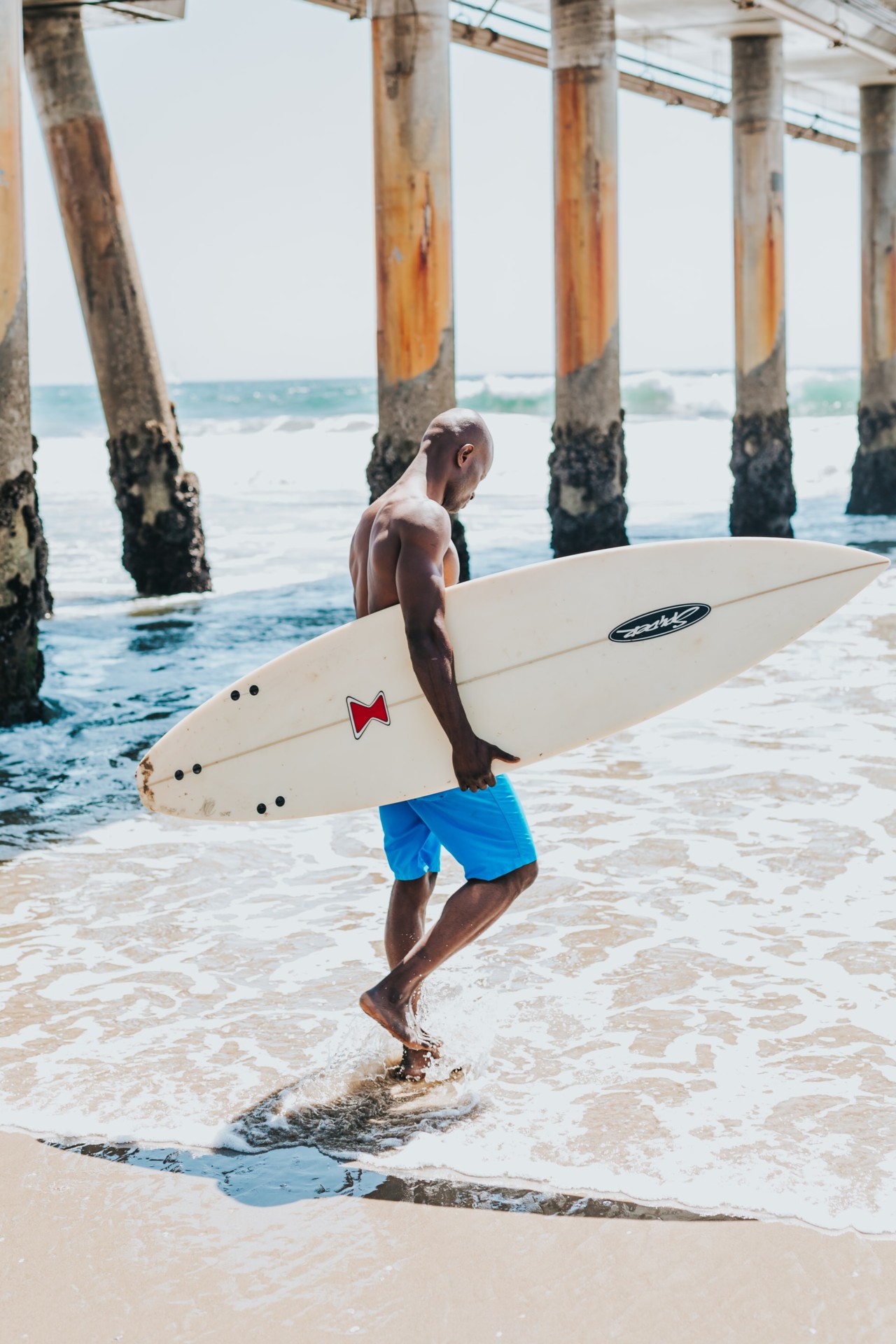Have you ever noticed that a surprising amount of surfers seem to have bald heads?
This seems to suggest that there is a link between surfing and baldness, although this is not entirely true.
Many surfers do go bald, but surfing does not have a direct impact on our hair growth or loss.
Yes, the ocean’s water dries out our scalps, but it can also add stimulating minerals to our skin.
Surfing does not make you go bald, but our chosen hairstyles and the salt and bacteria in the ocean could affect our hair over time.
Let’s take a deeper look into how surfing and the ocean affect hair loss, what you need to pay attention to as a bald surfer, and what exactly causes baldness.
- Does Surfing Cause Hair Loss?
- What Really Causes Hair Loss
- How Surfing Affects Your Hair
- How Surfing Can Cause Hair Loss
- Are There Any Bald Surfers?
- Do Bald Surfers Need to Pay Extra Attention to Anything?
- Conclusion
- You Might Also Like…
Does Surfing Cause Hair Loss?
Surfing, as a sport, does not cause hair loss. Any hair loss that is experienced as a regular surfer is likely due to factors that relate to surfing.
These factors can simply be a tightly tied hairstyle, infection from bacteria in the ocean, heavy hair due to water saturation, or factors that have nothing to do with the ocean.
Something worth noting is that hair loss is directly related to stress.
As many surfers use the extreme sport to help them relax and de-stress, it could be argued that surfing, to a point, could even reduce hair loss.
That being said, certain factors around surfing could cause or encourage accelerated hair loss.
What Really Causes Hair Loss
According to the American Academy of Dermatology Association, there are approximately 18 primary causes for hair loss.
These include the following, although the list does not limit the possibilities of hair loss through other means.
- Hereditary hair loss
- Age
- Alopecia areata
- Cancer treatment
- Childbirth, illness, and other stressors
- Haircare
- Hairstyles
- Hormonal imbalances
- Scalp infection
- Medication
- Scalp psoriasis
- Pulling on your hair
- Scarring alopecia
- Sexually transmitted infection
- Thyroid disease
- Lack of biotin, iron, protein, or zinc
- Friction
- Poison
As most of these are very case-specific, we will not dive into detail about each, but instead take a deeper look at which of the above relate, or can be related, to surfing.
How Surfing Affects Your Hair
Surfing does not directly affect our hair, but the combination of saltwater and sunlight does.
In short, saltwater has a tendency to dry out our hair and scalp, while the sunlight bleaches it.
Furthermore, the ocean is full of minerals such as magnesium, potassium, and selenium.
This is often why surfers have curly blonde hair, which has become known as surfer’s hair.
How Surfing Can Cause Hair Loss
As you can see above, multiple factors could be contributing to your hair loss, however, only a few of them could be related to surfing.
Stressors
Although most common in women shortly after childbirth, stress is a major cause of hair loss in both men and women.
Surfing, for most, acts as a stress reliever from our busy days, but this is not always the case.
If you are surfing simply to join your friends in their favorite activity, but do not enjoy the sport, find the ocean terrifying, and often worry about the next surf session you have planned, then surfing may indirectly be causing too much stress in your life.
This can also be true if you simply find yourself constantly worrying about all the dangers of surfing such as sea life and keeping the locals happy.
Yes, this is an unlikely scenario, but it is worth mentioning due to the fact that not everyone feels comfortable in the ocean, and high levels of stress are directly related to loss of hair.
Hair Care
Adding color, perming, relaxing, and straightening your hair will cause damage over time and could likely result in hair loss as the years pass.
Although this is not related directly to surfing, the ocean water is salty and dries out our hair and scalp. When our hair is too dry it becomes brittle.
The extra stress created by hair dye and other hair care products on top of dry surfer’s hair could take this damage past the point of return.
Hair Style
Constantly wearing your hair tightly pulled back can lead to hair loss. The medical term for this is traction alopecia.
Wearing your hair in a tight bun, ponytail, braiding it, or having tightly twisted dreadlocks are all causes of this type of hair loss.
This relates to surfing as surfers with long hair usually choose to tie up their hair to avoid it getting in the way.
As the ocean is rough and your hair will be wet, these hairstyles are often done in a way that they are tight and secure.
Of course, if you wear such a hairstyle for a few hours once or twice a week, you will likely have no problem. But those who surf almost every day with tight hair may begin to lose their hair.
Scalp Infection
A scalp infection can lead to dry, scaly, and inflamed areas of the scalp, which could potentially lead to hair loss.
The ocean, particularly the areas around a coastline, is a breeding ground for bacteria.
Partly due to the wastewater that is pumped into the ocean on a daily basis, the ocean is not a clean place.
As surfing involves spending large amounts of time along the coastline, there is a reasonably strong chance of getting an infection.
It is for this same reason that you should not enter the ocean with an open wound such as a new tattoo.
This is also why it is important to shower after each surf in order to properly deal with the excess seawater left on your skin and in your hair.
Scarring Alopecia
Scarring alopecia is caused by inflamed areas of the scalp destroying hair follicles and therefore leading to hair loss.
Once again, although it is not directly related to surfing, an infection or inflammation caused by the ocean and left untreated could begin to kill your hair follicles.
Friction
Constant friction can cause hair loss in short amounts of time. You may have noticed this if you often wear long pants or tight clothing such as stockings or leggings.
Regularly putting on and taking off a tight wetsuit can begin to remove the hair on your arms, chest, and legs.
Furthermore, when surfing in cold water, not only do surfers wear wetsuits, but their wetsuits are accompanied by a wetsuit hood.
Just as wearing hats and beanies can lead to hair loss due to friction, so can using a hood to surf in.
Of course, this is usually only done for an hour or two a day and is not likely to have a large effect – if any – on most surfers.
But some surfers who regularly choose to surf with a hood or hat, and then continue to cover their hair throughout the day could notice some loss of hair.
Dandruff
Dandruff is not a cause of baldness, although it can lead to an itchy head, which in turn causes us to scratch it.
Constantly scratching our scalp can damage hair follicles and eventually lead to balding.
As the ocean dries out our skin, spending a lot of time surfing can lead to a dry, itchy head, and possibly result in baldness due to scratching from the irritation.
Are There Any Bald Surfers?
Surfers come in all shapes and sizes. Yes, the cliche look of a surfer is someone with long bleach blond hair, tanned skin, and a lean and muscular body, although this is far from the entire truth.
Not all surfers have long hair, and in fact, some of the world’s top surfing athletes are naturally bald or choose to maintain their hair in such a way.
A few examples of world-class surfers with bald heads include Kelly Slater, Matt Archbold, Shane Dorian, and Jimbo Pellegrine.
Do Bald Surfers Need to Pay Extra Attention to Anything?
In most ways, surfing with short or no hair is an advantage.
Long hair tends to get in your face and eyes while surfing, we put our hands on it when trying to stand up, and it becomes heavy when wet.
The one main concern that bald surfers should have is their extra exposure to the sun.
With no hair on our heads, our scalps are directly exposed to the sun, and therefore become very likely to be sunburnt.
As a bald surfer, it is important to use sunscreen on your head or to wear a hat while surfing.
Apart from sun damage, and the lack of your hair falling into your eyes every time you duck dive under a wave, there is not much difference between bald surfers and those with hair.
Conclusion
The world is full of bald surfers, but it is unlikely that surfing itself was the cause.
Although spending large amounts of time in the ocean could speed along certain balding processes, the causes of balding are likely to be unrelated to surfing.
Being bald does not affect surfing, and in most cases is more helpful than not. Just make sure, as a bald surfer, that you protect your head from the sun.
You do not need to worry about surfing making you bald, but you should be aware of how our small actions while surfing could eventually lead to hair loss.
You Might Also Like…
-

Do Surfers Ride Switchfoot? 5 Benefits (& Why You Should Learn It)
-

Do Surfers Shave Their Legs? 5 Common Reasons (+Pros & Cons)
-

Do Surfers Wear Helmets? 8 Situations You Should Wear One (+4 Cons)
-

Do Surfers Poop in the Ocean? Myths & Facts (+5 Tips)
-
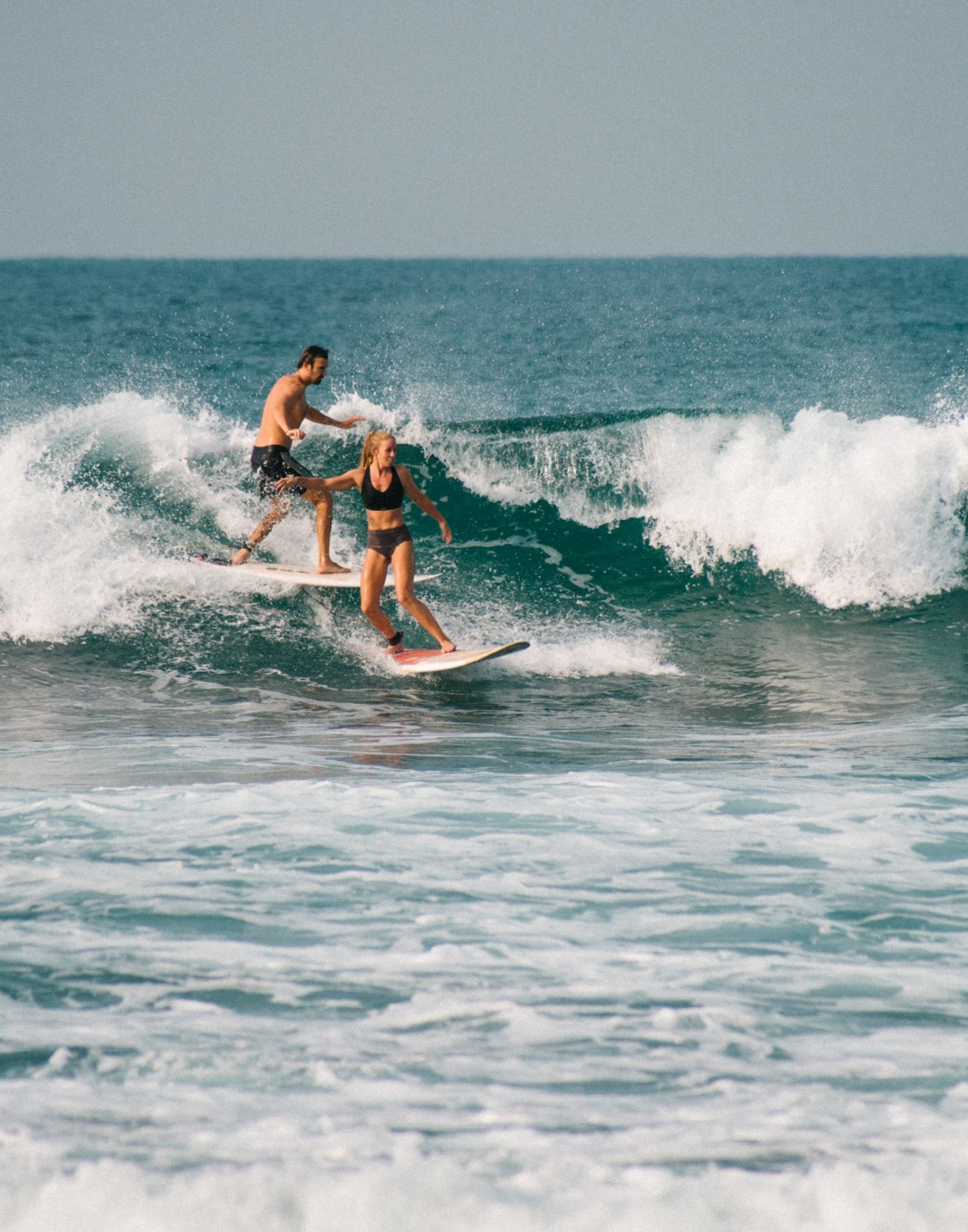
Do Surfers Run Into Each Other? 5 Common Reasons (+8 Tips)
-
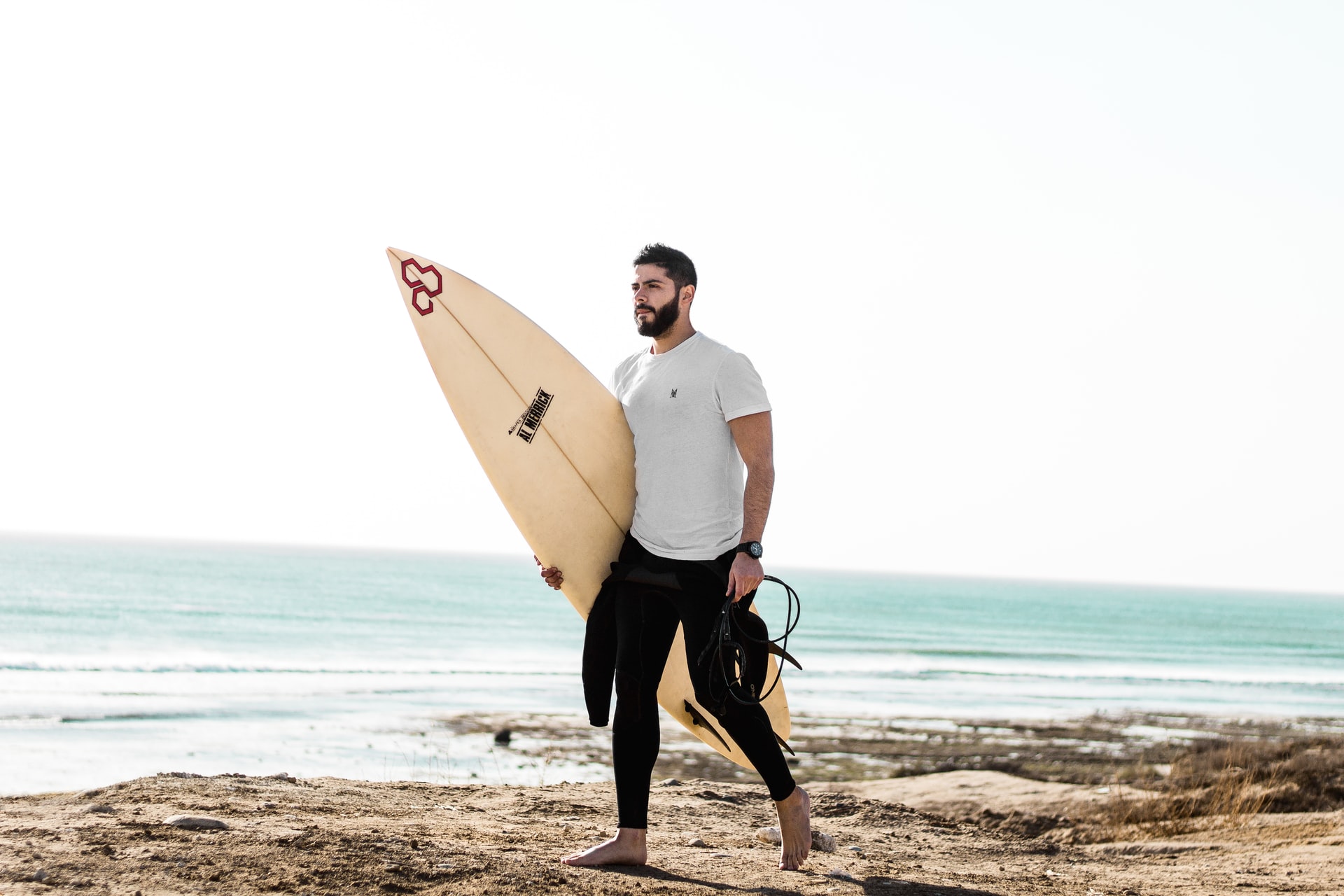
Do Surfers Have Beards? Pros & Cons You Should Know (+4 Tips)
-
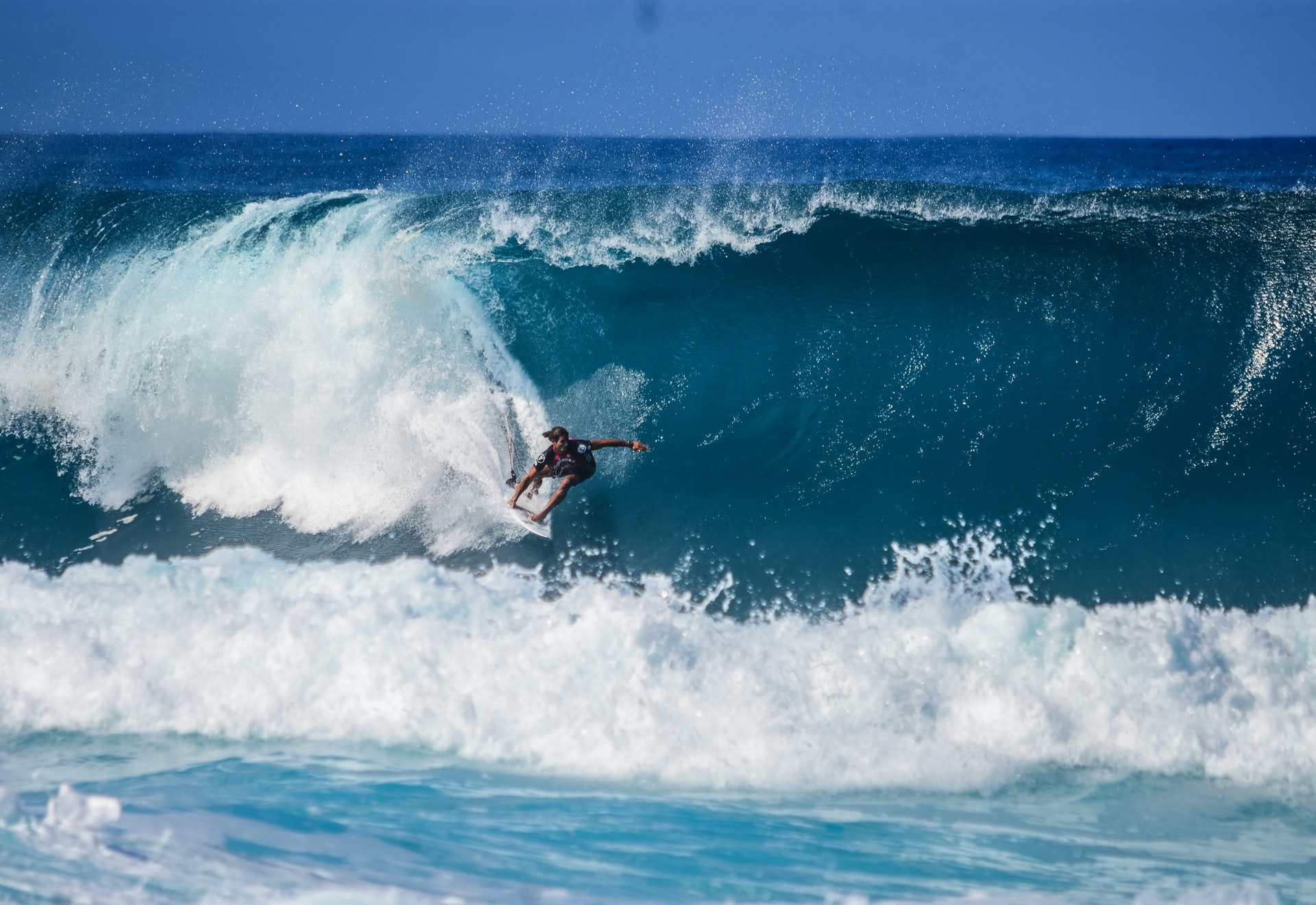
Do Surfers Like Constructive or Destructive Waves? (+Pros & Cons)
-
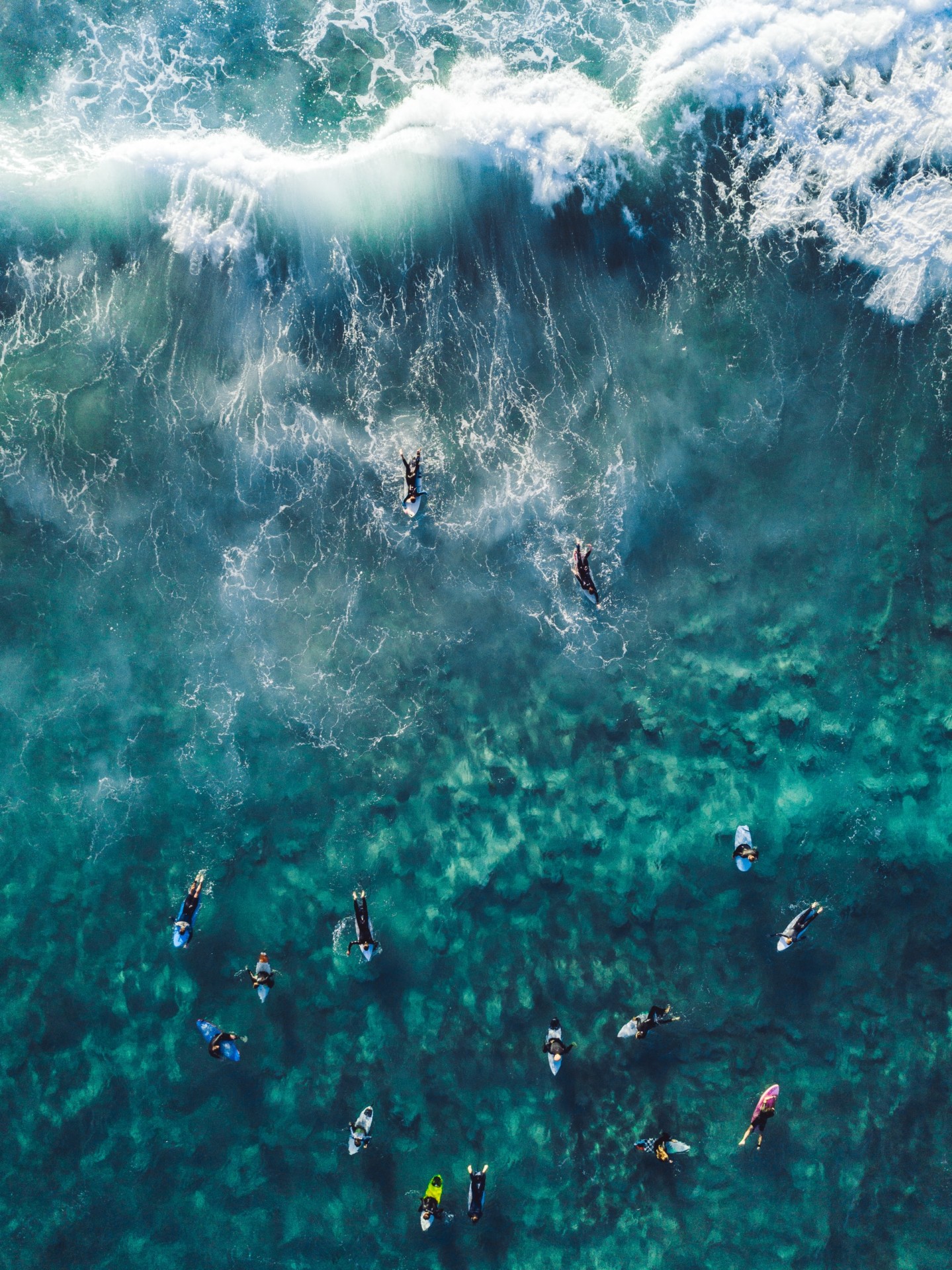
How to Surf Safely: 34 Crucial Tips (Every Surfer Should Know)
-
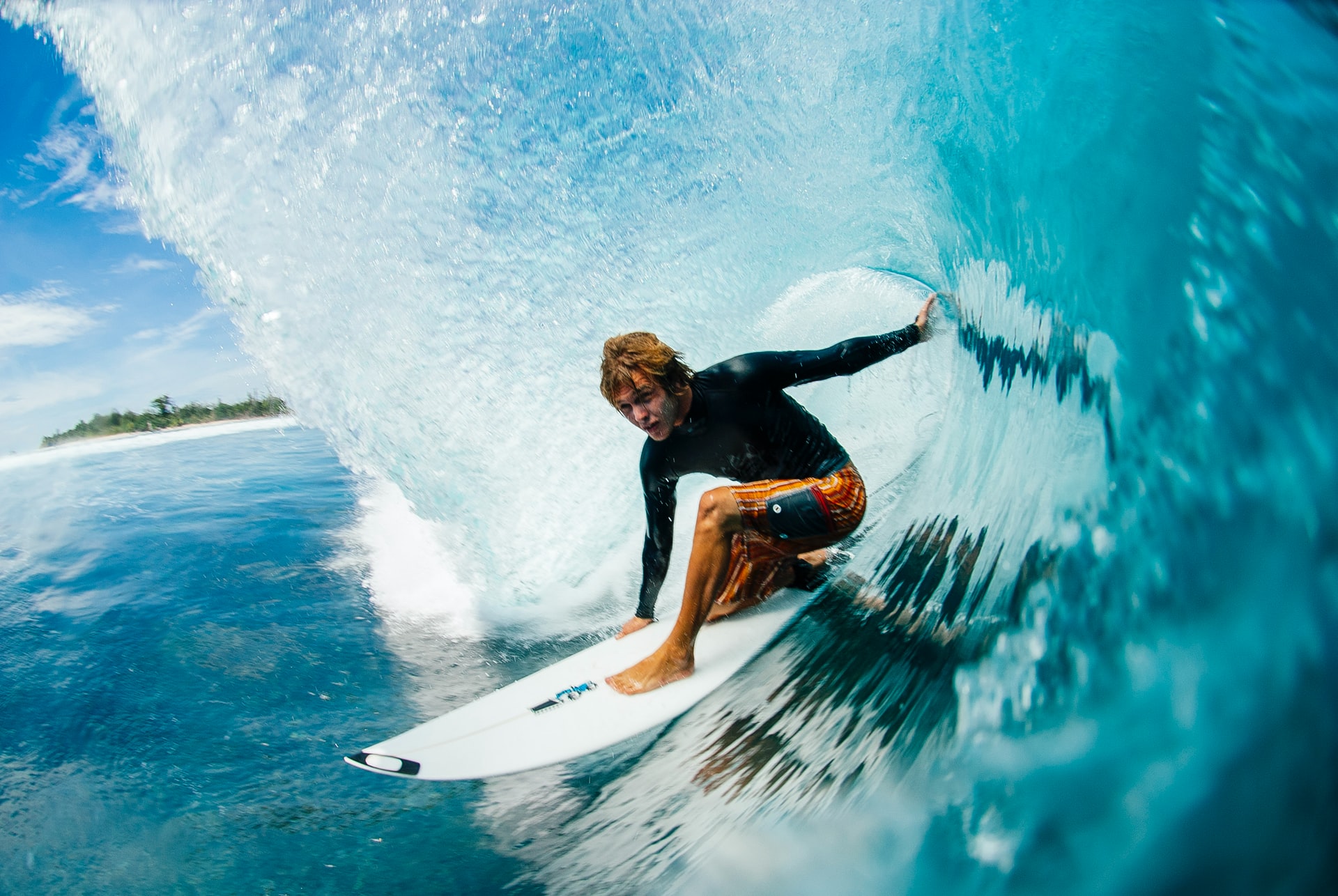
Do Pro Surfers Use Leashes? (+6 Reasons Why You Should Too)
-
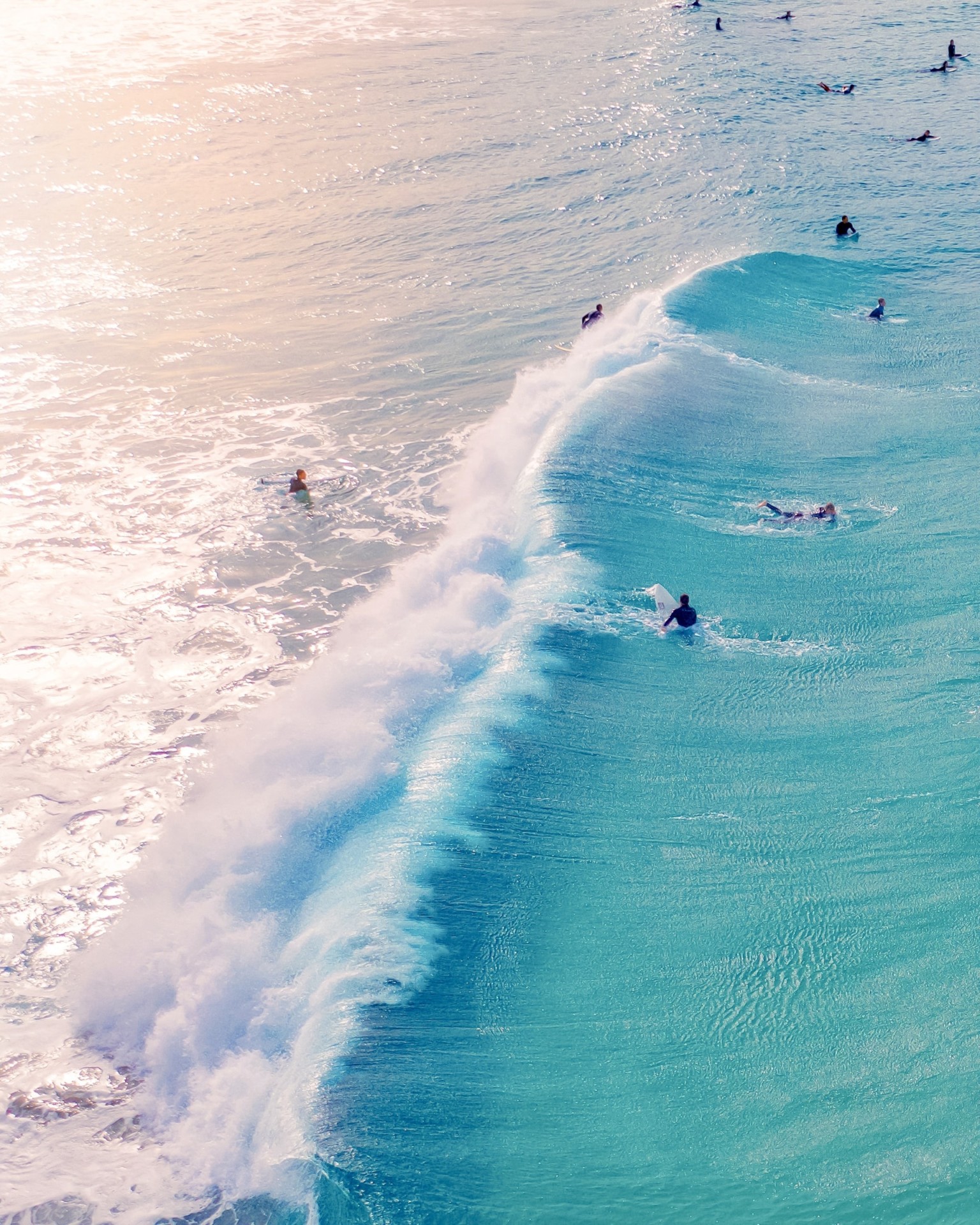
Do Many Surfers Drown? Here Are the Facts (+4 Common Reasons)
-
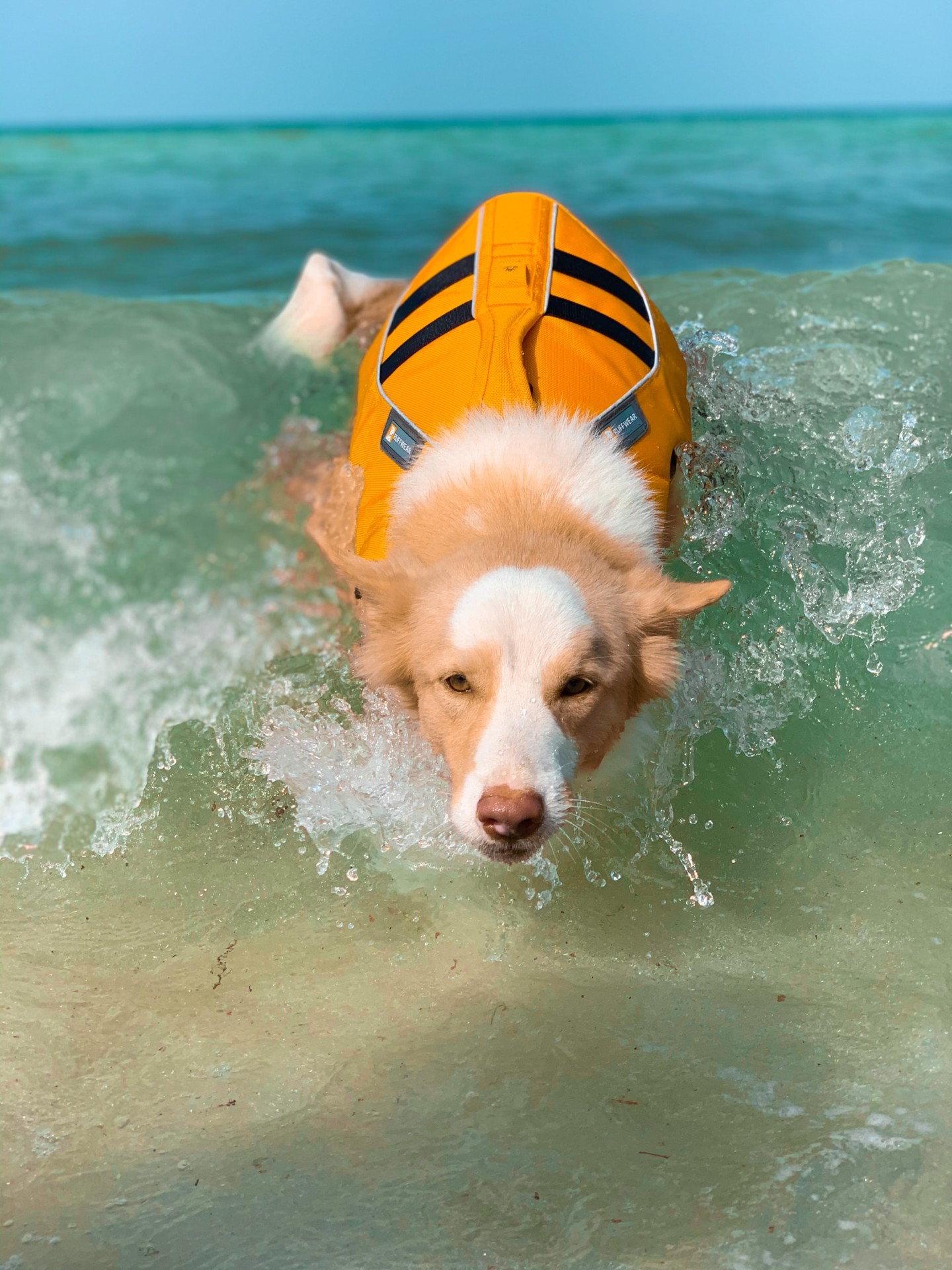
Do Surfers Wear Life Jackets? (7 Reasons Why They Don’t)
-
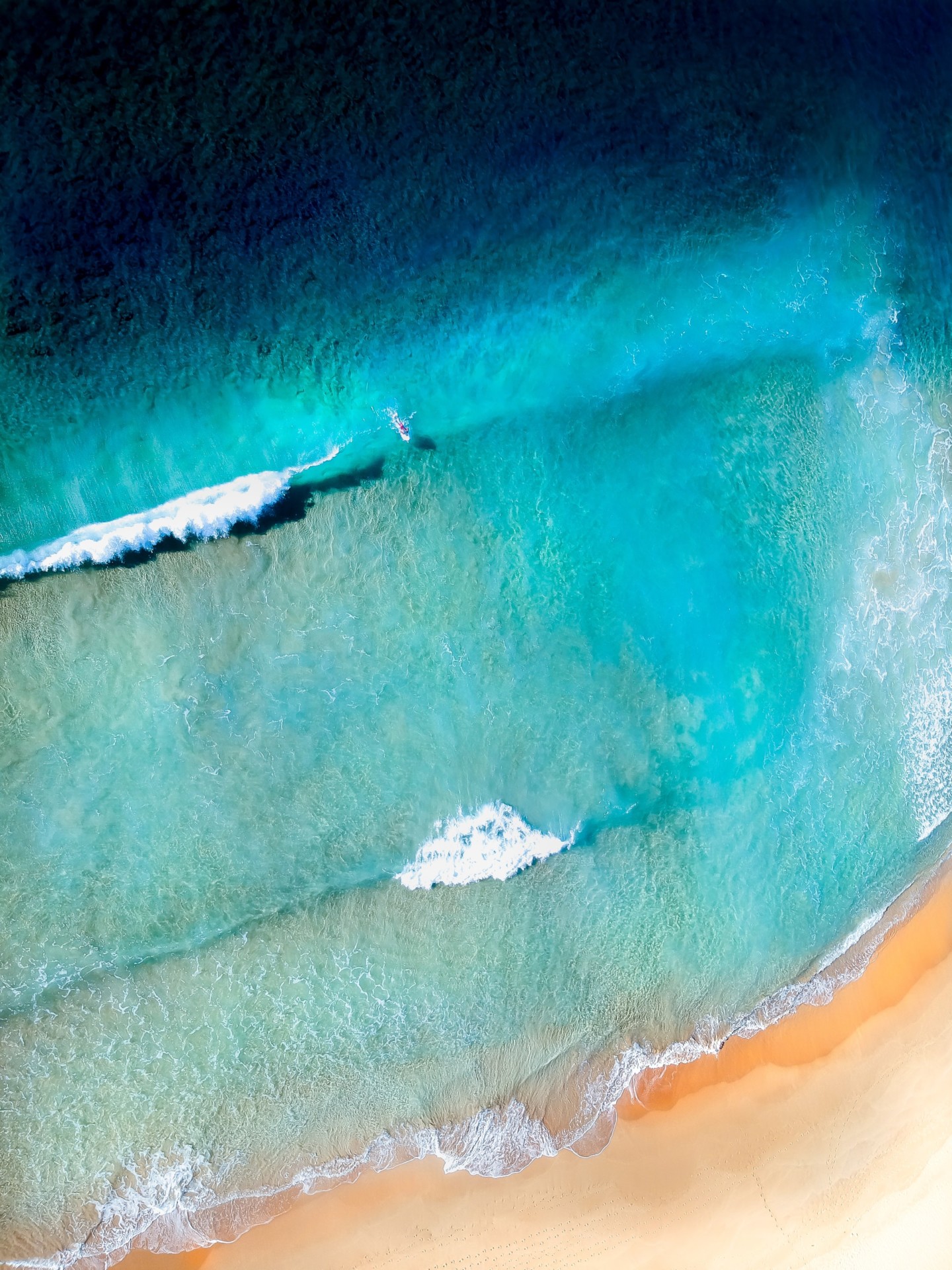
Do Surfers Like Rip Currents? (& How to Use Them Safely)

